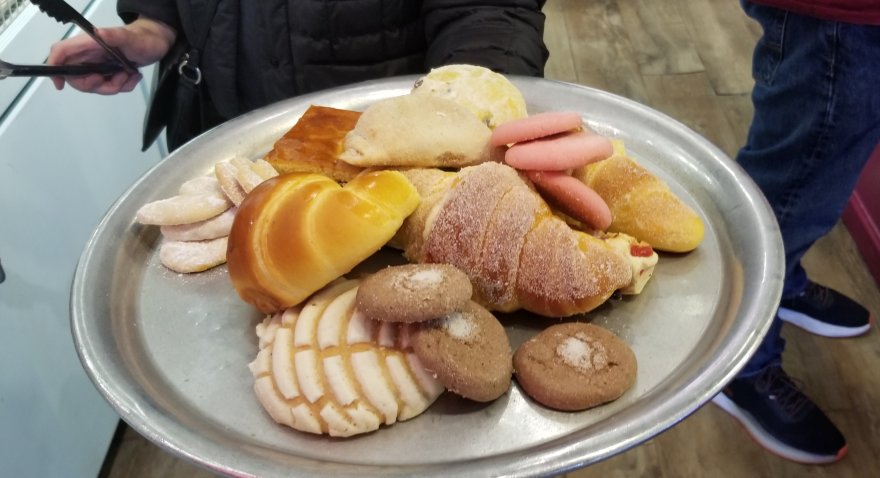Most families are stocking up their pantries to deal with the coronavirus isolation orders. But the overwhelming rush at local supermarkets left many stores with empty shelves. That has left restaurants facing a unique set of problems ... and opportunities.
On a recent Sunday morning, there was a long line outside of Mi Tierra, a restaurant in downtown San Antonio. But that wasn't unusual. The line is normally made up of hungry customers waiting for a table. But that Sunday was not a normal time. They weren't customers waiting for a table. They were customers waiting to buy up the restaurant's food.
The Cortez family has owned Mi Tierra for three generations. Pete Cortez, the eldest member of the new generation, summed up how the new era of coronavirus has transformed his legacy: “We have now gone from Mi Tierra the restaurant to Mi Tierra the grocery store."
The crisis sparked a swirl of new policy decisions from local and state governments, and the family raced to adjust.
On Thursday, Gov. Greg Abbott declared a state of emergency: “There will be no dining in restaurants, and bars and gyms will be closed,” he said. Days earlier, the mayors of the state’s major metro areas had already stopped table service.
Cortez said they immediately shifted gears. “We decided to put tents outside and started selling items that we had," he explained, "and within 30 minutes to an hour we had 50 people.”
Cortez said the customers asked for more items. So they pulled out the tables, booths and chairs from the dining area and filled it with pallets of goods and necessities.
“Ten pound packs of pasta. You can make spaghetti to fideo. There are lots of options," he said. "Toilet paper, obviously, is a little scarce. We use jumbo rolls, which are a thousand yards long, and we are breaking those down.”
Among the throng was customer Daniel Martinez, who came when his stepdaughter asked him to stop by. He pushed his partially filled grocery cart through a part of the restaurant where singing Mariachis would normally stroll.
“Mi Tierra has been around for a long time," he said, "and it’s one of our favorite restaurants. And for them to be doing this is good for the community.”
But it was also good for the many employees of Mi Tierra. Emily Knight, president of the Texas Restaurant Association, said with the state emergency declaration, restaurants across Texas are trying to stay afloat by selling meals curbside, take out and more.

“To see these individuals around Texas try to transform these businesses overnight -- I’ve never seen anything like it,” she explained.
Knight pointed out that there are 50,000 bars and restaurants in Texas generating $70 billion in revenue and employing 1.4 million people.
"We all know we can’t change the decisions because it is a public health crisis," she said. "But we’re going to see layoffs -- we’re projecting 500,000 people.”
Cortez said the family is trying to keep their workers -- including their bakery team -- on the job.
“We have the pan de huevo," he said. "We have the empanadas, the compechanas, the reposteria. Actually, it’s been pretty busy.”
Panifico, a neighborhood panaderia west of downtown, was also busy. A sign on the door advised customers that the staff took precautions because of the coronavirus.
Ester Cardenas, one of the bakers, explained that “[o]nly four customers can come inside. That’s it.”
She said they are constantly wiping down surfaces and cleaning the pans and tongs that customers use to select their pan de dulce.
“Everything was full this morning," she said, "and we restocked again, and it’s gone again, so this is the last of it for today.”
Cardenas said the store has seen a surge of customers. The little French rolls were a hot item.
“We had bollios but they’re gone already,” she said.
Cardenas said people are coming in for the basics and for comfort food like classic Mexican sweet bread -- items that remind them of the days before coronavirus.
David Martin Davies can be reached at DMDavies@TPR.org and on Twitter at @DavidMartinDavi.





